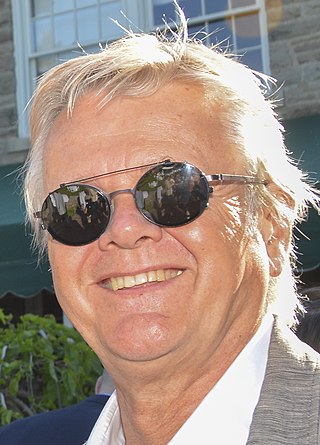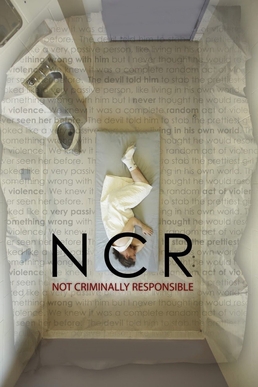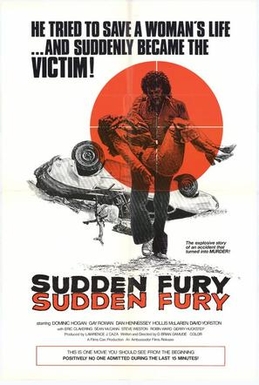Related Research Articles

The National Film Board of Canada is Canada's public film and digital media producer and distributor. An agency of the Government of Canada, the NFB produces and distributes documentary films, animation, web documentaries, and alternative dramas. In total, the NFB has produced over 13,000 productions since its inception, which have won over 5,000 awards. The NFB reports to the Parliament of Canada through the Minister of Canadian Heritage. It has bilingual production programs and branches in English and French, including multicultural-related documentaries.

Denis Villeneuve is a Canadian filmmaker. He has received seven Canadian Screen Awards as well as nominations for three Academy Awards, five BAFTA Awards, and two Golden Globe Awards. Villeneuve's films have grossed more than $1.8 billion worldwide.
Claude Jutra was a Canadian actor, film director, and screenwriter.

Gordon Edward Pinsent was a Canadian actor, writer, director, and singer. He was known for his roles in numerous productions, including Away from Her, The Rowdyman, John and the Missus, A Gift to Last, Due South, The Red Green Show, and Quentin Durgens, M.P. He was the voice of King Babar in the Babar the Elephant television and film productions from 1989 to 2015.
The Earle Grey Award is the lifetime achievement award for television acting of the Canadian Screen Awards, and its predecessor the Gemini Awards. It can be presented to an individual or collaborative team, and may be presented posthumously.
The John Drainie Award was an award given to an individual who has made a significant contribution to broadcasting in Canada. Although meant to be presented annually, there have been years where it was not presented.
The Academy of Canadian Cinema and Television presents an annual award for Best Motion Picture to the best Canadian film of the year.

Cordell Barker is a Canadian animator, director and screenwriter based in Winnipeg, Manitoba. He began animating in his late teens after taking on an apprenticeship at Kenn Perkins Animation. A two-time Academy Award nominee, Barker is an animation filmmaker with the National Film Board of Canada (NFB).
The Canadian Screen Award for Best Animated Short is awarded by the Academy of Canadian Cinema and Television to the best Canadian animated short film. Formerly part of the Genie Awards, since 2012 it has been presented as part of the Canadian Screen Awards.

Sturla Gunnarsson is an Icelandic-Canadian film and television director and producer.
Passage is a 2008 documentary film partly based on the book Fatal Passage about Sir John Franklin's lost expedition through the Northwest Passage. The film explores the fate of the doomed mission, including John Rae's efforts to uncover the truth, and Lady Franklin's campaign to defend her late husband's reputation. The film also features Inuit statesman Tagak Curley, who challenges claims made by Lady Franklin supported by her powerful friend, the story teller and "famous author Charles Dickens", widely reported at the time, that Aboriginal people were responsible for the signs of cannibalism among the remains of the doomed crew.
The 29th Genie Awards were held on April 4, 2009, to honour Canadian films released in 2008. The ceremony was held at the Canadian Aviation Museum in Ottawa, Ontario, and was broadcast on Global and IFC. The ceremony was hosted by Dave Foley.
John Kemeny was a Hungarian-Canadian film producer whom the Toronto Star called "the forgotten giant of Canadian film history and...the most successful producer in Canadian history." His production credits include The Apprenticeship of Duddy Kravitz, Atlantic City, and Quest for Fire.

NCR: Not Criminally Responsible is a 2013 Canadian documentary film by John Kastner, exploring the effects of the mental disorder defence in Canada, by following the stories of Sean Clifton, who stabbed and badly injured a woman named Julie Bouvier in a shopping mall while he was in a delusional state, and his traumatized victim. It was produced by the National Film Board of Canada.
Saverio "Sam" Grana is a Canadian television and film producer and screenwriter, most noted for the film Train of Dreams and the television miniseries The Boys of St. Vincent.
The 25th Canadian Film Awards were announced on October 12, 1973, to honour achievements in Canadian film.
The Stratford Film Festival was an annual film festival in Stratford, Ontario, Canada, which was staged from 1956 to 1961 and from 1971 to 1975. One of the first film festivals in North America ever to present international films, it was the preeminent film festival in the Southern Ontario region until the launch of the Festival of Festivals in 1976 resulted in a loss of arts funding and audience support that led the Stratford Film Festival to permanently cease operations that same year.
A Little Fellow from Gambo: The Joey Smallwood Story is a 1970 documentary film directed by Julian Biggs for the National Film Board of Canada in 1970.

Sudden Fury is a Canadian thriller drama film directed by Brian Damude and released in 1975.
American Whiskey Bar is a Canadian television film, which was broadcast by Citytv in 1998. The film was directed by Bruce McDonald as an adaptation of the novel by Michael Turner.
References
- ↑ Gerald Pratley, A Century of Canadian Cinema. Lynx Images, 2003. ISBN 1-894073-21-5. p. 96.
- ↑ "Canadian-made film has Pinsent starred". Regina Leader-Post , August 8, 1975.
- ↑ Joan Irwin, "Local NFB movie on U.S. TV tonight". Montreal Star , April 28, 1975.
- 1 2 3 Blaik Kirby, "NFB goes commercial with thriller". The Globe and Mail , August 7, 1975.
- 1 2 Alexander Hausvater, "Filmglish". Motion, March–April–May 1974. pp. 30-31.
- ↑ "ABC Weekly Late Night Fare Varied". Rocky Mount Telegram , April 28, 1975.
- ↑ Les Wedman, "Some like it hot". Vancouver Sun , April 25, 1975.
- ↑ "NFB's mystery thriller 'Heatwave'". The Golden Star, August 6, 1975.
- ↑ Frank Daley, "281 compete for Canada's Oscars". Ottawa Journal , September 23, 1975.
- ↑ Martin Knelman, "Competing as Canada's best". The Globe and Mail , October 9, 1975.
- ↑ Martin Knelman, "Marriage in Quebec: the sly humor of Claude Jutra". The Globe and Mail , October 11, 1975.